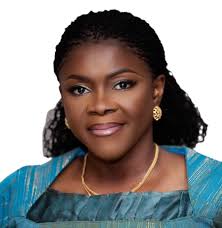The National Commission for Civic Education (NCCE), has urged Ghanaians to refrain from vote selling and buying.
According to the NCCE, the deep-seated canker has perpetuated political corruption, thereby hindering the country's progress.
According to the Assin Fosu Municipal Director of NCCE, Mr Paul Tetteh, many political aspirants resort to purchasing votes to secure their positions and subsequently recoup their investments through corrupt practices, thereby impeding the nation's growth.
Speaking in an interview with Ghana News Agency, he said, “No amount of monetary inducement should sway voters from exercising their civic duty with integrity.”
Vote-buying involves offering gifts, money, or other incentives in exchange for votes during elections.
Mr. Tetteh referenced instances during the recent parliamentary and presidential primaries of the New Patriotic Party (NPP) and the National Democratic Congress (NDC) where the practice was prevalent.
The methods of vote-buying vary, ranging from distributing money and food items to promising employment opportunities, scholarships, and other financial incentives.
He said the practise of vote-buying was punishable under the Representation of the People Act, 1992 (Act 284), which explicitly prohibits the practise of vote-buying, stating that any person who offers, gives, or receives money or gifts in exchange for votes commits an offence punishable by law.
In addition, the Criminal Offences Act, of 1960 (Act 29) criminalises bribery in elections, further clarifying the legal consequences of vote buying and cautioned the public to eschew it.
On the part of the media, Mr Tetteh underscored the necessity for practitioners to refrain from facilitating politicians' use of their platforms for insults and incitement of violence as the nation approaches the December elections.
He identified the culture of insults, misinformation, exchange of money for votes and ethnic divisive campaigning as threats to democracy in Ghana.
As the country prepares for the upcoming election, he called on the public to prioritise unity and constructive dialogue, emphasising the significance of engagement in the decision-making processes to hold leaders accountable for their actions.
Latest Stories
-
Empower360 completes third training session for 30 young women under Ghana Grows Program
43 minutes -
Sudan: A new gov’t amid escalating military-political conflicts and a deepening humanitarian crisis
46 minutes -
National Vaccine Institute makes impressive strides, activate measures for drug production
51 minutes -
Ministry of Works and Housing signs MoU for water exploration in Ghana
1 hour -
Tree for Life initiative takes off
2 hours -
FDA destroys counterfeit pharmaceutical products worth GH₵42m
2 hours -
First responsibly mined Ghanaian gold bars presented to Asantehene
3 hours -
Two notorious robbers jailed for a series of attacks in Wa
3 hours -
Ofori-Atta must first be arrested before any trial in absentia – OSP clarifies
3 hours -
QNET reaffirms ethical business practices following false media allegations in Ghana and Burkina Faso
3 hours -
OSP declaring Ofori-Atta wanted over bruised ego – Miracles Aboagye
3 hours -
OSP must necessarily be aggressive but presumption of innocence is fundamental – Kofi Bentil
3 hours -
I wouldn’t return to Ghana if I were Ofori-Atta – Miracles Aboagye on OSP case
4 hours -
I won’t advise Ofori-Atta to return to Ghana – Kofi Bentil
4 hours -
OSP has overreached his bounds; I won’t advise Ofori-Atta to return – Kofi Bentil
4 hours

